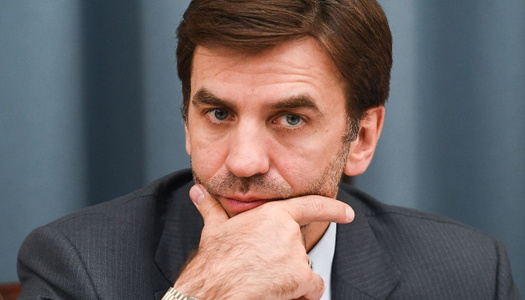
Former Russian minister formally charged after accusations that he used his position to form a criminal group
Мы говорим как есть не только про политику. Скачайте приложение.
Former Open Government Minister Mikhail Abyzov has been charged with fraud and forming a criminal group. According to Russia’s Investigative Committee, Abyzov worked with five suspected accomplices from 2011 through 2014 to embezzle four billion rubles (more than $62 million) from two companies based in Novosibirsk Oblast, Regionalnye Elektricheskie Seti and Sibirskaia Energeticheskaia Kompania. The suspects allegedly transferred the money they received out of Russia. Section 3 of the statute under which Abyzov was charged, which penalizes forming criminal groups, allows for a prison sentence of up to 20 years.
The former minister has been arrested, according to Interfax, RBC, and Vedomosti. RBC reported that Russia’s Federal Security Service (FSB) carried out the arrest. Interfax indicated that Abyzov currently resides in Italy and the United States, and another source told Vedomosti that the defendant had flown into Moscow for a weeklong business trip. However, Interfax reported on suspicions that Abyzov had in fact been “lured” back into Russia and may face additional fraud charges in the coming weeks. TASS wrote that the former minister is currently under questioning. A few hours after the news of Abyzov’s arrest broke, the Investigative Committee confirmed that he was being held under suspicion of using his government position to form a criminal organization that also involved entrepreneurs and energy officials Nikolai Stepanov, Maxim Rusakov, Galina Fraidenberg, Alexander Pelipasov, and Sergey Ilyichev.
From 2012 to 2018, Abyzov led the Russian government’s “Open Government” project. In January of 2012, then-Russian President Dmitry Medvedev appointed Abyzov as one of his advisors. In May, when Medvedev had returned to his former position as Prime Minister under current President Vladimir Putin, Abyzov became a member of Putin’s cabinet as the minister in charge of the Open Government project.
Medvedev first proposed the project in 2011 under the name “Big Government.” The agency was intended to serve as an investigative body that would provide oversight on the actions of Russia’s executive agencies. The task of selecting the experts who would lead the project fell to the Russian prime minister, who chose researchers from a list provided by Abyzov along with a group of self-nominated citizens who had registered on the project’s website.
After Russia’s 2018 presidential elections, the post of Open Government Minister was abolished, and Abyzov was not included in Putin’s next cabinet. The Russian government announced that Open Government would adopt a more regulatory function, but it became clear earlier this week that the agency had practically been liquidated in full.
Prime Minister Dmitry Medvedev is aware of the charges against Abyzov, executive branch press secretary Oleg Osipov told Interfax. “As I understand it, the actions in question are not connected to the official government duties of the former minister. The matter concerns [Abyzov’s] commercial activities,” Osipov said. He added that the former minister had “encountered grievances” from his business partners. Dmitry Peskov, the press secretary to Vladimir Putin, said the Russian president was warned in advance about the charges against Abyzov.
Abyzov was one of the wealthiest members of the Russian government. In 2015, his income reportedly reached 456 million rubles (more than $6.5 million), making him the wealthiest minister in Russia. In 2016, Abyzov’s income grew to 521 million rubles, and it declined to 181 million in 2017. In 2018, Forbes rated Abyzov’s net worth at $600 million. The former government official was ranked 162nd on the publication’s list of “Russia’s 200 Richest Businessmen.”
Before he began working in government, Abyzov was based in the energy industry. In the late 1990s and early 2000s, he was a leading member of Novosibirskenergo and EES Rossii. Abyzov was said to be involved in the energy reforms introduced by former EES Rossii head Anatoly Chubais between 2002 and 2008.
Between 2005 and 2007, Abyzov led Kuzbassrazrezugol, one of the largest coal mining companies in the country. He later became the chair of the boards of directors for several companies outside the energy industry, namely the industrial investment firm Ru-Com, the manufacturing direction company Gruppa E4, and the Mostotrest transportation infrastructure construction group.
Translation by Hilah Kohen